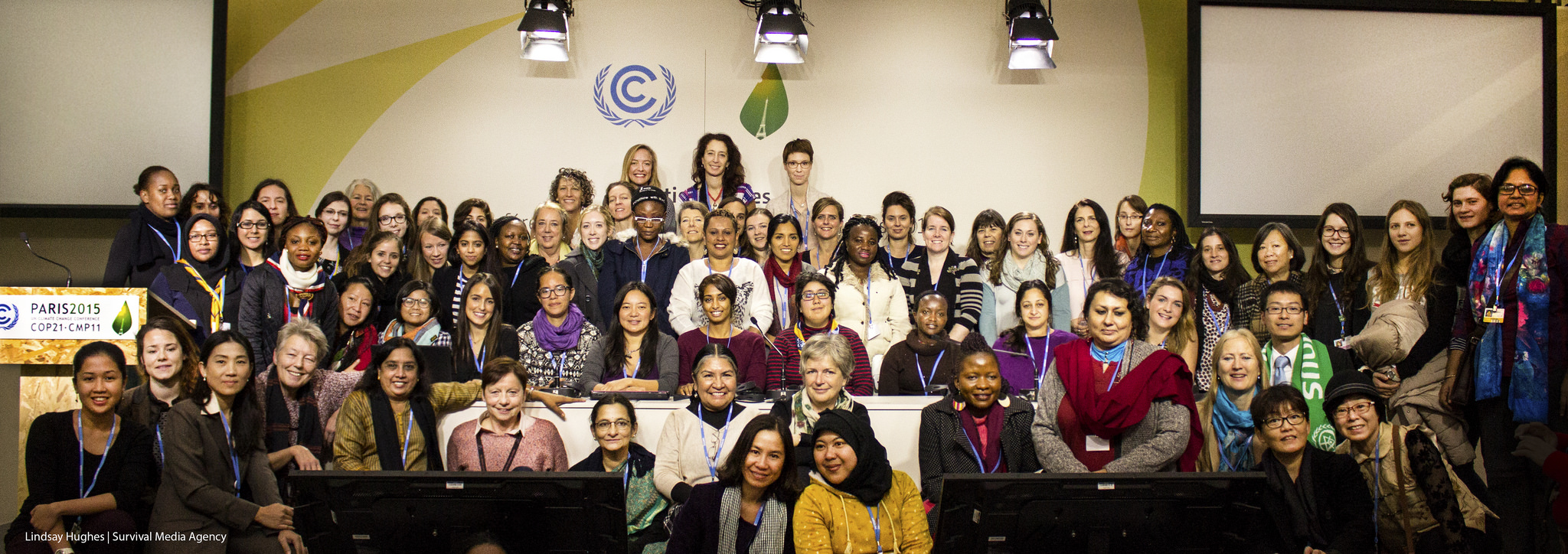The 21st Conference of Parties (COP21) is a historic outcome for climate change. This is the first time that international legal recognition of climate change and its impacts are being realized on a grand scale. What’s missing, however, is the inclusion of human rights in how the mechanisms of the agreement will play out.
Safety from the worst effects of climate disruption is a human right, but these effects, like extreme weather and drought, hit women, particularly, low-income women, women of color, women workers, and indigenous women, the hardest. Climate impacts may hit women first and worst, but this doesn’t mean women have to be victims.
In my time as a youth and civil society delegate to the COPs since COP18 in 2012, women and gender causes have advanced dramatically. At COP18 in Doha, I witnessed the first inaugural Gender Day, now celebrated at every COP. Over these past four COPs, textual additions, while not ultimately included, increasingly accounted for the gender-differentiated impacts of climate change. This year, in Paris, where the penultimate decision was signed, gender was finally seen in the final and approved text. Here we saw a different type of interaction with non-technical aspects, such as human rights, including women’s rights.
It wasn’t just the final agreement at COP21 that made history, it was the actions that led to it. Civil society groups banded together as the InterConstituency working group on human rights representing women, youth, trade unions, human rights experts, indigenous peoples and environmental groups. Solidarity amongst impacted groups, such as the G77, African group, and Alliance of Small Island States (AOSIS), to name a few, have been successful as bargaining blocs in negotiations in the past by leveraging their collective voices. Enacting the same strategy, this InterConstituency 'Solidarity Group' created a paragraph in the final agreement that proposed language that would unite the goals of each as a united front.
The paragraph was placed strategically within Article 2, the portion of the agreement set to discuss human rights, reads as follows:
Acknowledging that climate change is a common concern of humankind, Parties should, when taking action to address climate change, respect, promote and consider their respective obligations on human rights, the right to health, the rights of indigenous peoples, local communities, migrants, children, persons with disabilities and people in vulnerable situations and the right to development, as well as gender equality, empowerment of women and intergenerational equity.

Caption: First Young Feminists Day, Photo Credit: WEDO
While not enforceable, gender equality is still mentioned within the text, providing climate justice activists with the determination and drive needed to push for the loose COP21 framework to reflect the needs of countries most impacted by climate disruption. With the first ever Young Feminist Day held at COP21 in Paris and yet another successful Gender Day, there is more momentum than ever for women’s rights and gender justice.
To tackle the climate crisis we need all genders. The power to make that happen rests with the people as implementation of the agreement depends on all of us. In The Guardian, female delegates at the UN climate conference reflected on how climate disruption affects women, and how grassroots movements like what we saw at COP21 are leading the way for climate action. The progress seen at COP21 shows that our movement will continue to be how change is made for the better in the global call to solve the climate crisis. Our successes show that when we come together and work for what’s right we can change the world.
